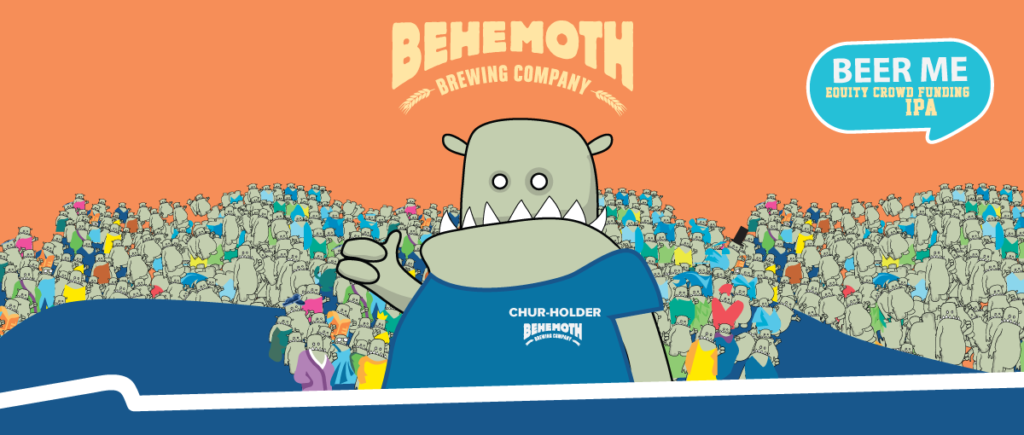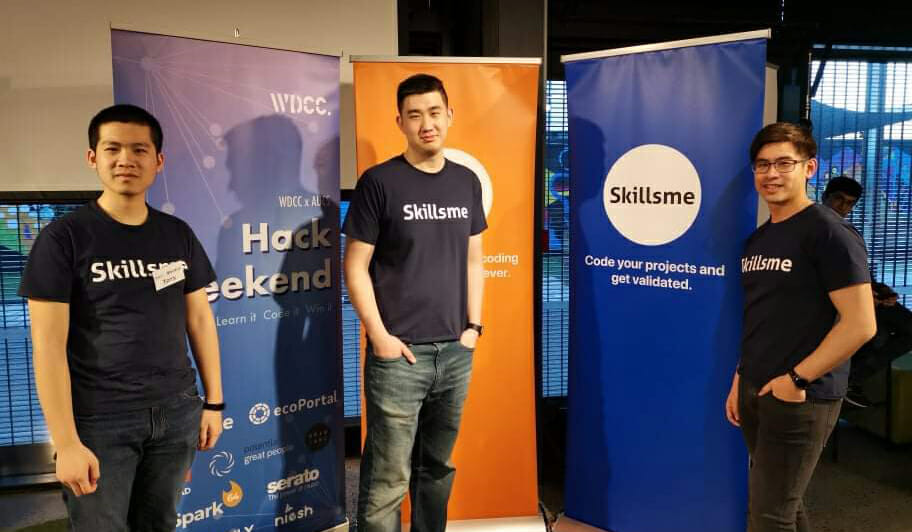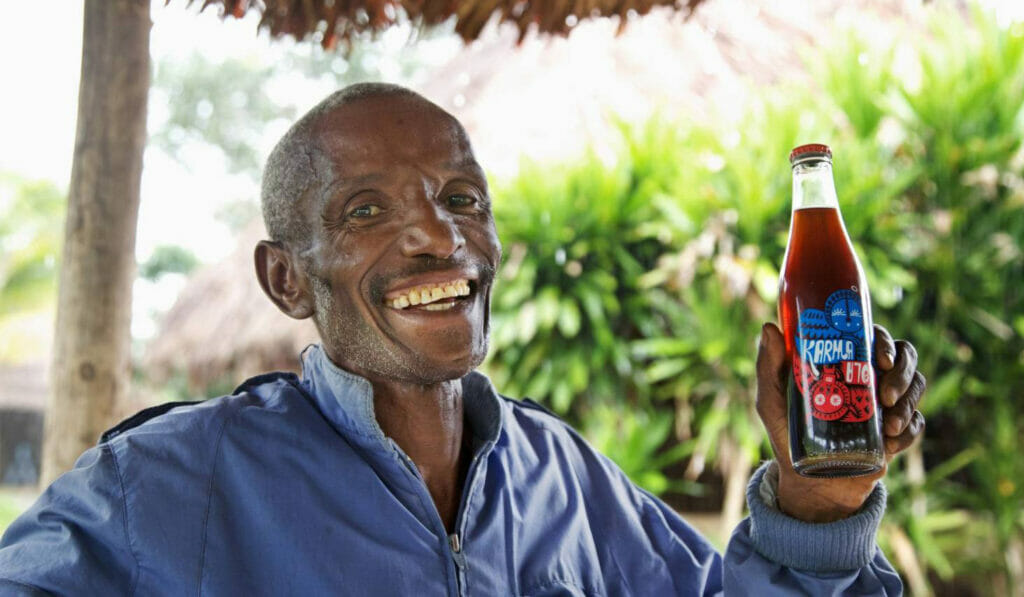Tell us about yourself and Hoa Cleantech?
I am a Kiwi currently living in Canada who loves the outdoors and working on different ways to make a positive impact on this world. My passion for sustainability goes back many years. In 2009, I identified initiatives that would lead to sustainable beer processing at the Monteith’s brewery in Greymouth for my final year engineering project. This passion has then led me to design and develop a small electric boat, come up with a circular packaging design concept for a Singaporean skin-care company, and write about waste and the circular economy.
A particular area I am interested in is the role of economics and innovation to drive sustainability, which led me to co-found Picea Hoa Technologies Ltd. (“Hoa Cleantech”), in 2019, with a Belgium by the name of Matthieu Loos. Hoa Cleantech is a consulting and software company with a mission to deliver economical solutions to drive industry’s transition towards decarbonised and zero-waste operations. We primarily leverage data to optimise transport decarbonisation and help our customers navigate and transition to new technologies, while reducing costs and risks. We work with utilities, local governments and private companies to deliver:
- Fleet decarbonisation strategies.
- Electric vehicle smart charging simulation (optimise charging infrastructure to reduce capital and operating costs).
- Electric vehicle grid impact assessments (using proprietary algorithms, we can provide insights into the load patterns and impact EVs have on the grid).
- GHG forecasts (forecast, quantify and track future CO2eq reductions from decarbonisation and zero-waste initiatives, against baselines).
What was the process you worked through to validate your platform in-market?

Through our consulting work, we started formulating a hypothesis for a software service that organisations can use in-house to efficiently develop and track the impact (infrastructure required, costs, GHG reductions) zero-emission vehicle fleets have on their specific operation. We then developed an MVP and started talking with organisations that operate large vehicle fleets. We found potential customers were interested but would normally prefer to pay (more) for a consultant to help them in, especially when our hypothesis value proposition / MVP was leading to more of an enterprise offering.
Therefore, we went back to the drawing board and started looking at our business model a bit differently. Meanwhile, we continued delivering consulting services, while we undertook R&D and transferred our IP into a cloud-based platform, which helps us decipher bigger data sets and deliver better solutions for our customers.
However, we have not given up on the product idea. We are still talking with different people across different industries to find where those wants, fears and needs intersect with the features, benefits and experience we can deliver with a software service. We have also just been accepted into a cleantech accelerator program, which will help us with discovery and validation.
In starting your own business, what has been a surprising challenge, or mistake, that sticks out to you?
Everything! When you work for a consulting company, you begin to believe that you are pretty good at most things. However, you are always a few steps away from the actual coal face (legal issues, cashflow, business development, marketing, etc.). Leaving the “safety” of working for others to start your own business, quickly brings your ego down. But, it does then teach you a lot that may take years to learn working for a company.
Although, there is one surprising challenge I found that stands out for me. It is hard to convince people to care enough about what we are doing to make a sale. You may think / know that you could optimise their costs and GHG reductions (at a much lower cost than others), but you need a lot more than that to get a contract. I just have to keep remembering what Daniel Kehneman (a Nobel Prize winner in economics) wrote: “No one ever made a decision because of a number. They needed a story”.
Tell us about your experience with Kea Connect since reaching out in 2019?
I reached out to Kea in late 2019 to see if I could tap into the global Kiwi network and get some advice around starting a SaaS company. This led to a series of introductions to various high-profile people, with the most notable being Lovina McMurchy. Lovina was very generous with her time and provided invaluable advice that helped structure our thinking and direction. I have found Kea always very friendly and willing to help where possible, which I am very appreciative of.
How has Hoa Cleantech grown since 2019?
Having just incorporated the company in June 2019, we quickly found ourselves with enough work to sustain both Matthieu and I full-time, leading us to promptly leave our respective employers. We therefore started 2020 very optimistically and had developed some aggressive growth targets. However, Covid came along and upended some of our plans and knocked our confidence – like it did for a lot of people around the world. Covid also resulted in my wife and I being back in NZ for a good chunk of 2020, while we were working remotely and trying to get back to our life in Vancouver.
Fortunately, around October last year we managed to pick up 5 new projects and brought on board a Director of Software at 0.5FTE. We are also shortlisted to receive government funding for advanced research and commercialization of part of our technology, which is planned to be used to hire a software developer.
What have been the most useful resources for you and your co-founders that have helped Hoa Cleantech achieve growth?
Existing customers. If you deliver quality, nothing beats the recommendation of a company you have worked with.
Can you tell us a little bit about the projects you have recently been working on?
Sure. For a BC municipality (local government), we developed a 20-year strategic plan to reduce greenhouse gas (GHG) emissions through fleet electrification and development of charging infrastructure. Their fleet consists of 154 light to heavy-duty and off-road vehicles operating out of different sites including two fire halls, a police station and operations centre. By looking at the fleet vehicle tracking data, we could model different long-term scenarios and fuel switching technologies based on annual budgets, and forecast respective GHG reductions.
We also just completed a project to compare the total cost of ownership of using either diesel, battery electric or hydrogen fuel cell electric buses to service a city located in Canada. The client wanted to see how the costs compared as different bus technologies scaled into large fleets. Our simulations highlighted the many risks associated with moving to zero-emission bus fleets and the impact certain variables have in making either battery or hydrogen buses more competitive.
You are due to the return home soon – What were the reasons behind your decision to move back to New Zealand?
Canada was always a short to medium term adventure to gain invaluable experience and memories to bring back home to NZ. The timing of our return in February is driven in large part by the recent arrival of my wife (another Kiwi) and my first child, and wanting our respective families to meet her.
What has been the most unexpected challenge around managing the transition and eventual move home to New Zealand?
From a work perspective, I’m sure that will come when taxes are due… From a personal perspective, trying not to think too much about all the unknowns.
How are you planning to manage operations of Hoa Cleantech once you make the move home?
Well Matthieu, who lives in Vancouver, will continue to lead and grow the company. We will also look to get someone new to help his BD efforts across North America. From my end, I will take that transition one step at a time.
HOW KEA CAN HELP YOUR BUSINESS GROW
Kea Connect
Kea Connect is a free service that will help your business grow offshore. We connect you personally with regional, sector-specific experts and peers.
Resources
Kea is here to help New Zealand businesses grow offshore. Be inspired and hear advice from businesses who have created their export path.
Jobs Portal
Looking for the right talent for your team? Reach our global Kiwi community through the Kea international job portal.

 MENU
MENU










